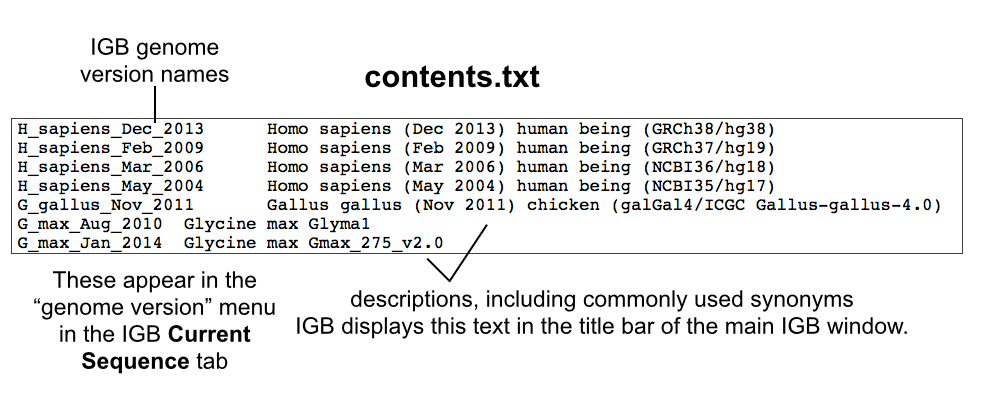
IGB QuickLoad (QL) is a very simple, file-based system you can use to share data files on-line using a Web site or cloud storage service like Dropbox. Using the IGB QuickLoad system, you can set and configure data sets so that they'll be listed in the IGB Data Access panel, making it easy for lab members, collaborators, and the public to browse and view your data.
And if you use a Web site to share your data, you can also use password protection to ensure that only trusted that people who want to view your dat enter a user name and password to view all or part of the site.
You can share any file that IGB can open (using the File > Open... ) using a QuickLoad site.
QuickLoad sites can reside on your computer hard drive, on-line, or in the cloud. Typically, you'll create a QuickLoad site on your local computer, test it, and then copy it to a Web site or to a Dropbox Public folder.
First check to see if your genome version is already supported in the main IGB QuickLoad site.
An IGB QuickLoad site contains sub-directories (sub-folders) named for all the genome versions it supports. So, to find out which genome versions are already supported, view the directory listing or open this file: http://igbquickload.org/quickload/contents.txt.
This meta-data file reports all the genome versions supported on the main IGB QuickLoad site. Your QuickLoad site will also need its own contents.txt file, but you'll only list entries for genome versions you wish to support on your site.
The contents.txt file is a tab-delimited, meta-data file with two columns of data:
For each genome version name listed in column 1, you'll find a directory with the same name in the IGBQuickLoad site root directory.
If your genome of interest is already listed in the main IGB QuickLoad contents.txt meta-data file, then follow these directions to set up your QuickLoad iste: Sharing data for a genome in IGB QuickLoad.
If your genome of interest is not there, then follow these directions: Sharing data for a new or custom genome not already part of IGB QuickLoad.
